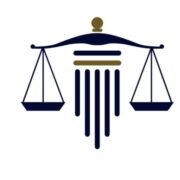Best Toxic Tort Lawyers in Polokwane
Share your needs with us, get contacted by law firms.
Free. Takes 2 min.
List of the best lawyers in Polokwane, South Africa
About Toxic Tort Law in Polokwane, South Africa
Toxic Tort Law in Polokwane, South Africa, addresses legal claims arising from exposure to hazardous substances. These substances might include chemicals, pharmaceuticals, environmental toxins, or occupational hazards. The primary aim is to provide recourse to individuals who have suffered health or property damage due to such exposure. In Polokwane, with its growing industrial sectors, potential exposure to such toxins is an important public health concern. The region's evolving legal landscape is attentive to the environmental and occupational impacts of these industries, ensuring that those affected have avenues for redress.
Why You May Need a Lawyer
People in Polokwane may require legal assistance in the field of Toxic Tort for several reasons. Common situations include workplace exposure where harmful substances are present, environmental exposure from local industrial pollution, or health impacts from defective consumer products containing toxic chemicals. Additionally, individuals may need legal help if they suffer from exposure to unsafe pharmaceuticals or substances in their home environments, such as lead paint or asbestos. A lawyer can help navigate the complexities of proving exposure, establishing liability, and securing compensation for damages incurred.
Local Laws Overview
The legal landscape for Toxic Tort in Polokwane is shaped by both national and regional regulations. Key legislation includes the National Environmental Management Act, which enforces principles of sustainable development and environmental protection. Occupational health and safety standards are upheld by various workplace safety laws, aiming to protect workers from hazardous exposures. Additionally, consumer protection laws demand transparency from corporations about potential health risks associated with their products. Understanding these laws is crucial for establishing liability and ensuring victims' rights are protected.
Frequently Asked Questions
What constitutes a toxic tort claim?
A toxic tort claim typically involves proving that exposure to a hazardous substance caused personal injury or property damage. This may involve exposure in the workplace, home, or environment.
Who can file a toxic tort lawsuit?
Individuals, groups, or communities who have suffered health issues or property damage due to exposure to toxic substances can file a lawsuit. Organizations may also pursue legal action on behalf of affected individuals.
How do I prove that a substance caused my illness?
This generally requires scientific evidence linking the substance to the injury or illness, which is often supported by expert testimony. Medical documentation is also crucial in establishing the causation link.
How long do I have to file a claim?
The timeframe, known as the "prescription period," varies depending on the specific circumstances of the case and regional regulations. It is critical to seek legal advice promptly to ensure compliance with these timelines.
What compensation can I receive if my case is successful?
Potential compensation may include medical expenses, lost wages, pain and suffering, and in some cases, punitive damages, aimed to deter future misconduct by defendants.
Can a company be held liable for toxic exposure at work?
Yes, companies are responsible for maintaining safe environments. If they fail to mitigate risks or inform employees about potential hazards, they may be liable for resulting injuries.
What should I do if I suspect exposure to a toxic substance?
If you suspect exposure, seek medical attention immediately, document the exposure's nature and circumstances, and consult with a lawyer to explore your legal options.
Can I file a class action lawsuit for a toxic tort case?
Yes, if multiple individuals have experienced similar harm from the same source, they may be able to pursue a class action lawsuit, which could be more efficient than individual claims.
What role does government regulation play in toxic torts?
Governmental regulations establish safety standards and may influence the outcome of toxic tort cases by defining acceptable exposure levels and determining liability standards.
Do I need a lawyer who specializes in toxic torts?
Due to the complexity of toxic tort cases, expertise in this specific legal area is highly beneficial for navigating the intricacies of evidence and the legal process effectively.
Additional Resources
For individuals seeking assistance or more information on Toxic Tort in Polokwane, several resources are available. The Department of Environmental Affairs provides guidelines and assistance on environmental safety and pollution concerns. The South African Human Rights Commission offers support for individuals whose health may have been compromised by environmental factors. Additionally, local legal aid clinics can provide preliminary advice and help connect you with experienced toxic tort attorneys. It is also advisable to review publications by the South African Medical Association for health-related insights into toxic exposure.
Next Steps
If you believe you need legal assistance in a toxic tort case, consider the following steps. First, document your exposure, including dates, locations, and substances involved. Seek medical evaluation and gather any related medical records. Consult with a lawyer experienced in toxic torts who can evaluate your case and advise on steps forward. Preparing a list of questions before your consultation can help maximize the effectiveness of your meeting. Remember, early action can be crucial in complex legal proceedings, so seek advice as soon as possible to preserve your rights and ensure comprehensive case evaluation.
Lawzana helps you find the best lawyers and law firms in Polokwane through a curated and pre-screened list of qualified legal professionals. Our platform offers rankings and detailed profiles of attorneys and law firms, allowing you to compare based on practice areas, including Toxic Tort, experience, and client feedback.
Each profile includes a description of the firm's areas of practice, client reviews, team members and partners, year of establishment, spoken languages, office locations, contact information, social media presence, and any published articles or resources. Most firms on our platform speak English and are experienced in both local and international legal matters.
Get a quote from top-rated law firms in Polokwane, South Africa — quickly, securely, and without unnecessary hassle.
Disclaimer:
The information provided on this page is for general informational purposes only and does not constitute legal advice. While we strive to ensure the accuracy and relevance of the content, legal information may change over time, and interpretations of the law can vary. You should always consult with a qualified legal professional for advice specific to your situation.
We disclaim all liability for actions taken or not taken based on the content of this page. If you believe any information is incorrect or outdated, please contact us, and we will review and update it where appropriate.










